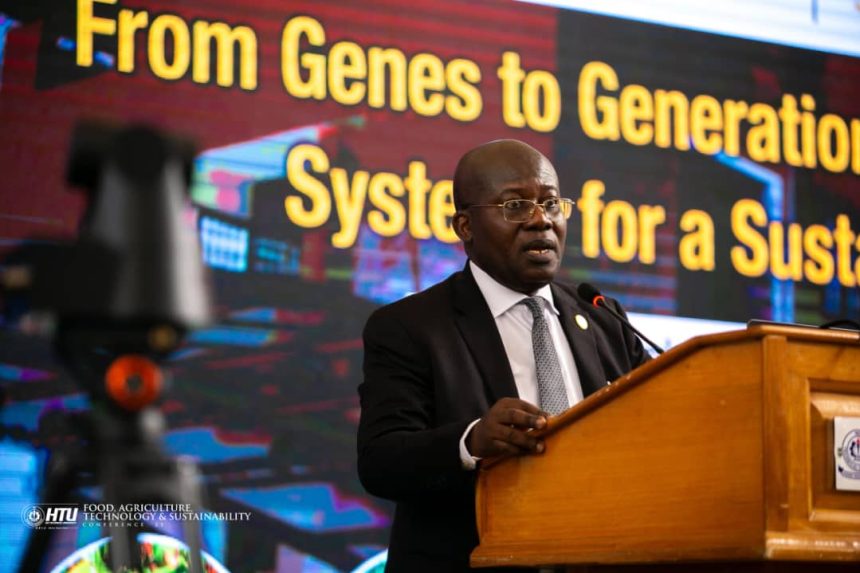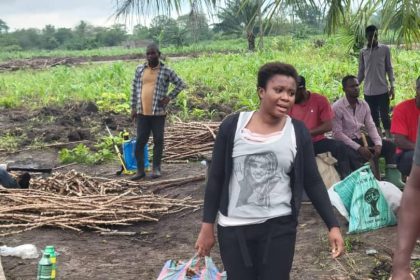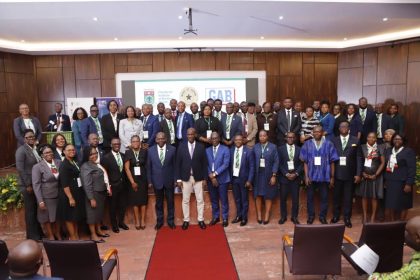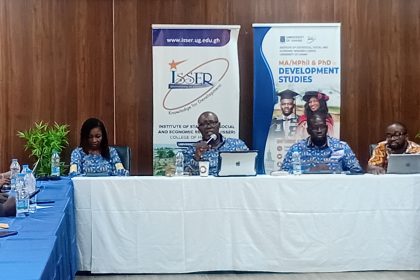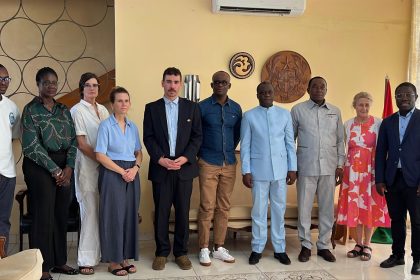Prof Eric Yirenkyi Danquah, Founding Director, West Africa Centre for Crop Improvement, has emphasised that the Feed Ghana Programme (FGP) must aim for transformative change rather than mere improvement.
He stressed that the FGP, government’s flagship initiative designed to accelerate the transformation and modernisation of the agricultural sector should be a catalyst for revolutionary change in the sector.
The professor of Plant Molecular Genetics at the University of Ghana said this while delivering his keynote address at the Food, Agriculture, Technology and Sustainability Conference at Ho Technical University (HTU) themed: “Rethinking the Future of Food and its Allied Systems in an Era of Sustainability and Circularity.”
“FGP is a good start but Ghana needs transformation, not another improvement plan. Our greatest opportunity is to build a science-led, innovative-driven, market-ready agricultural economy.”
He said the FGP must succeed and not fail “because if this fails, we’re doomed for life,” outlining that its success would mean Ghana feeding itself, farmers producing for markets, not survival, youth entering agribusiness profitably, climate-resilient, data-driven farming and, Ghana becoming a net exporter, not an importer.
The globally recognised plant geneticist and science leader suggested that things be done differently for the desired change, including more science, innovation and modern breeding, strengthened seed systems and breeder seed pipelines, fixed agricultural financing, strong irrigation and water management, and data and digital tools for decision-making.
“Agriculture, you know is central but growth slowed down terribly over a very long time, imports rise in over $2.5 billion. And when you look deeper, you see that yields are too low, post-harvest losses. There is weak irrigation, limited finance. And we need to reset Ghana and I’m happy that we have a government which is talking about resetting Ghana.
What do we mean by resetting Ghana? Past plans failed. Why did they fail? Weak execution. With weak execution, what do you expect?”
He called for visionary investment, turning knowledge into national power through sustained investment in science, technology and innovation saying, “The prosperity of nations is written in their budgets for research.”
Prof Danquah wondered why Ghana would wait for planes to arrive from Paris and Tel Aviv to give vegetable seeds to farmers to plant and said the time had come to start pressing charges of crime against humanity “for politicians who do not invest in science and technology to face the law because of course, many die of their inaction.”
Prof (Mrs) Ibok N. Oduro, an astute researcher and professor of Post-harvest Technology at the Department of Food Science and Technology at Kwame Nkrumah University of Science and Technology in her presentation described Ghana’s food system as a story of both “progress and paradox,” saying where there were notable strides, there were still challenges of food security, poverty and sustainability issues.
She noted the country had potential for agricultural growth but needed to address factors like climate change, limited access to modern farming techniques and market infrastructure, warning that “We cannot continue as usual. We must innovate not only in laboratories, but in policies, practices and mindsets.”
Mr Eric Opoku, Minister of Food and Agriculture was grateful for the conference and said the insights, experiences and the dialogue from the conference aligned with the FGP initiative, designed to ensure that Ghana was able to produce food sufficiently to feed her citizens and to ensure the agriculture sector was repositioned to guarantee incessant supply of raw materials for agro-industrial operations.
He assured of government’s readiness to mobilise all the resources available, material and human, to make an impact, saying, “We have the brainpower, except that we are not making maximum use of the brainpower that we have.”
Mr Emmanuel Armah-Kofi Buah, Minister of Lands and Natural Resources and Caretaker Minister of Environment, Science and Technology, through his representative, said the transformation of the agriculture sector could not occur in silos but required a coordinated ecosystem that linked research, industry, students, entrepreneurs and policy makers.
“It requires that knowledge generated in universities and research institutions is translated into usable technologies and commercially viable solutions that benefit farmers, agribusinesses and households.”
Dr Marindame Kombate, a representative from Ghana Circular Economy Centre, said circular economy was not a side conversation but central to the future of Ghana’s food and agriculture systems, urging, “Let us design a future where waste becomes value, innovation becomes opportunities and a future where Ghana leads Africa in the secular transition.”
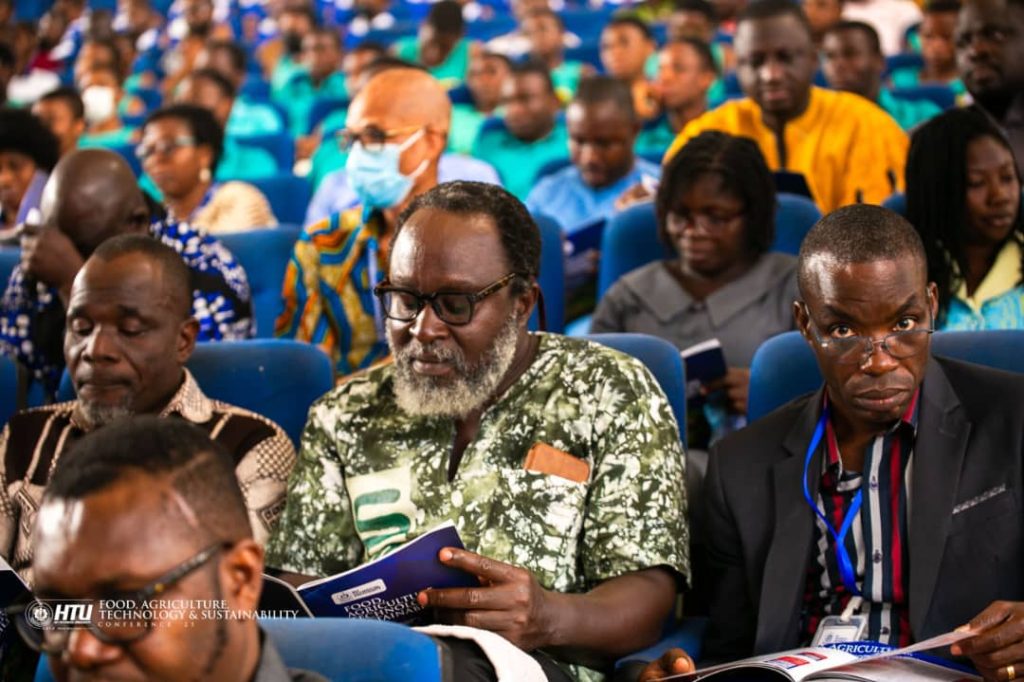
Prof Ben Q. Honyenuga, Vice-Chancellor, HTU said the conference was in line with the university’s vision to become a hub of practical education, advancing sustainable global development and alluded to its breakthrough research which reduced the gestation period of baobab plant from between 20 to 30 years to only two and a half.
“Additionally, our niche area in hospitality and tourism management positions us to explore the intersection between food systems and its value chain. We cannot talk about hospitality without talking about food and agriculture technology and allied fields.”
Mr James Gunu, Volta Regional Minister, assured the Vice-Chancellor that the Regional Coordinating Council was ready to collaborate with the university.
GNA


